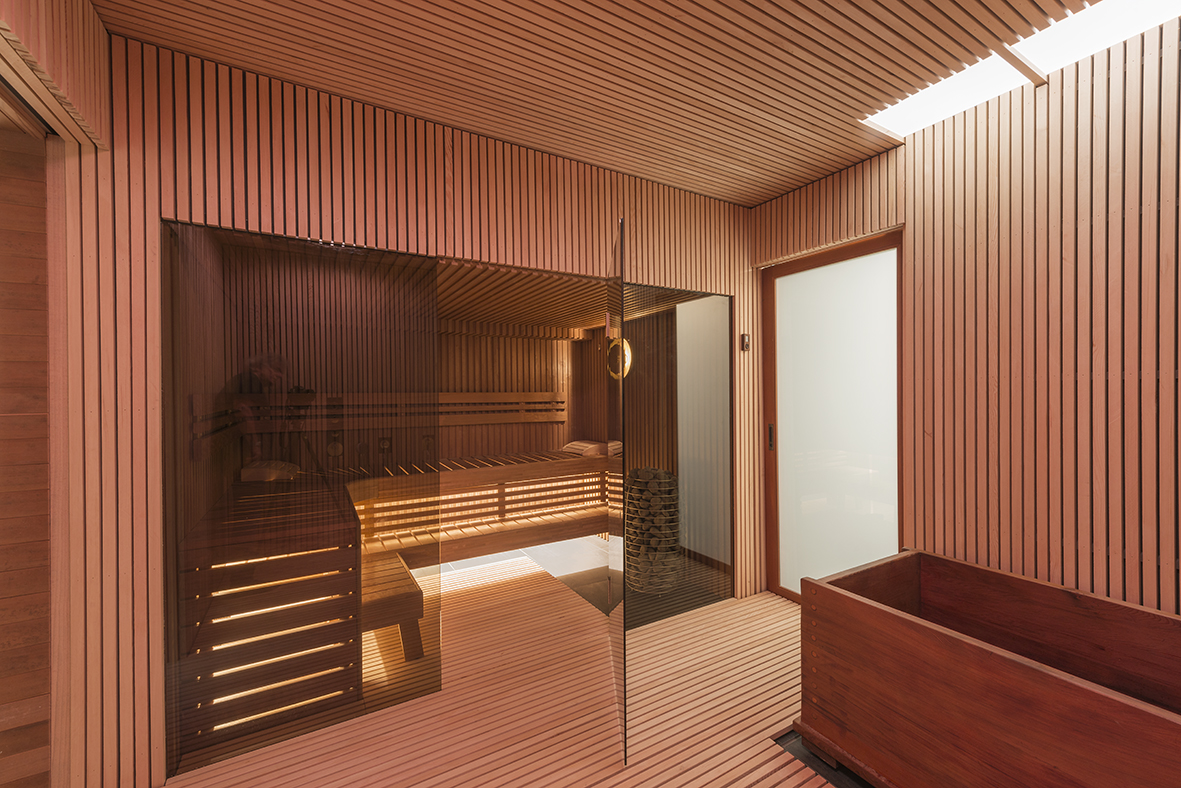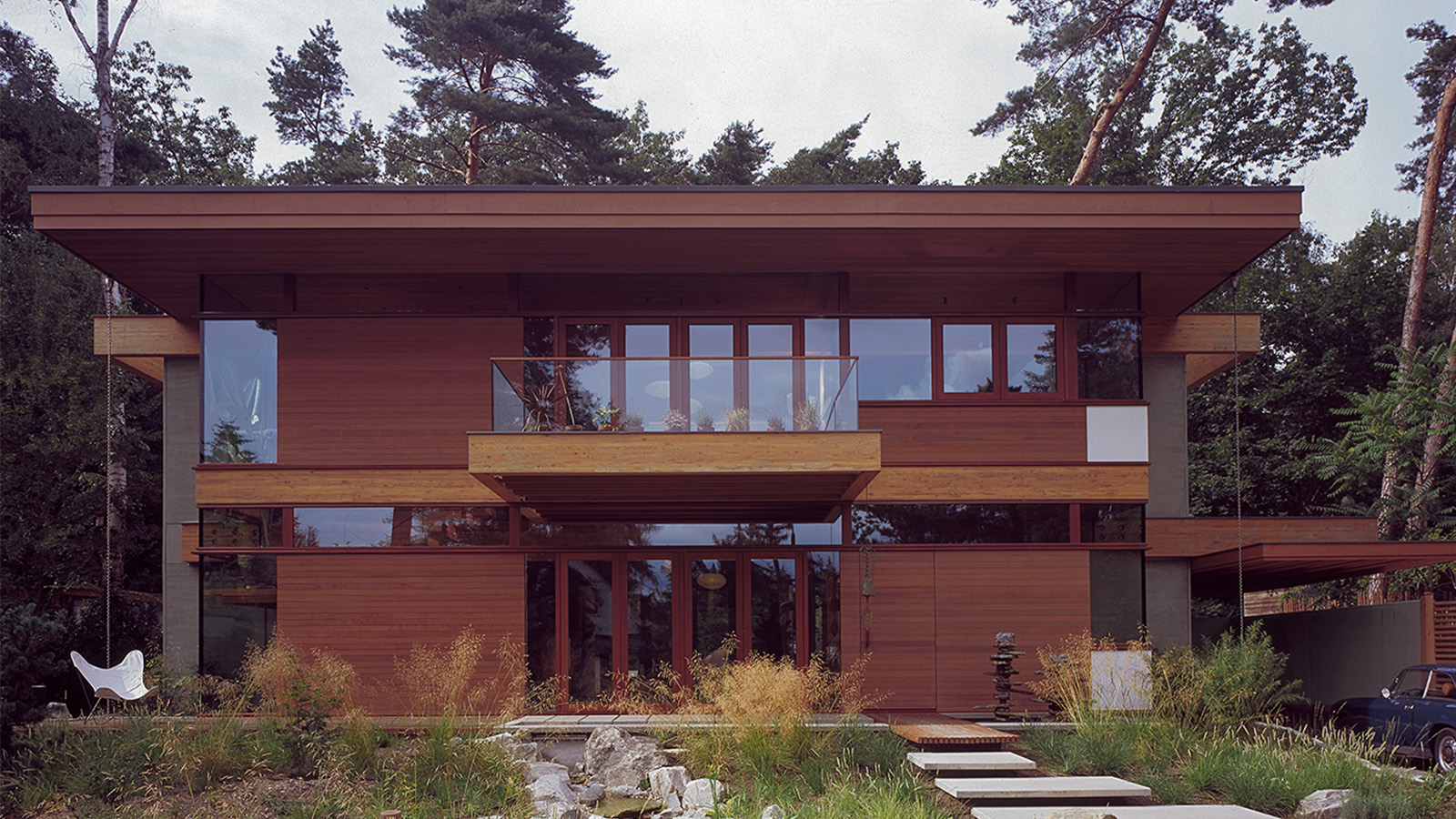
The work of the late Los Angeles master Ray Kappe (1927-2019) is part of the American modernist architecture legacy that vintage furniture dealer Lars Triesch fell in love with from afar. The result of his passion is Triesch Residence, a Kappe-designed home built in the leafy town of Kleinmachnow, southwest of central Berlin.
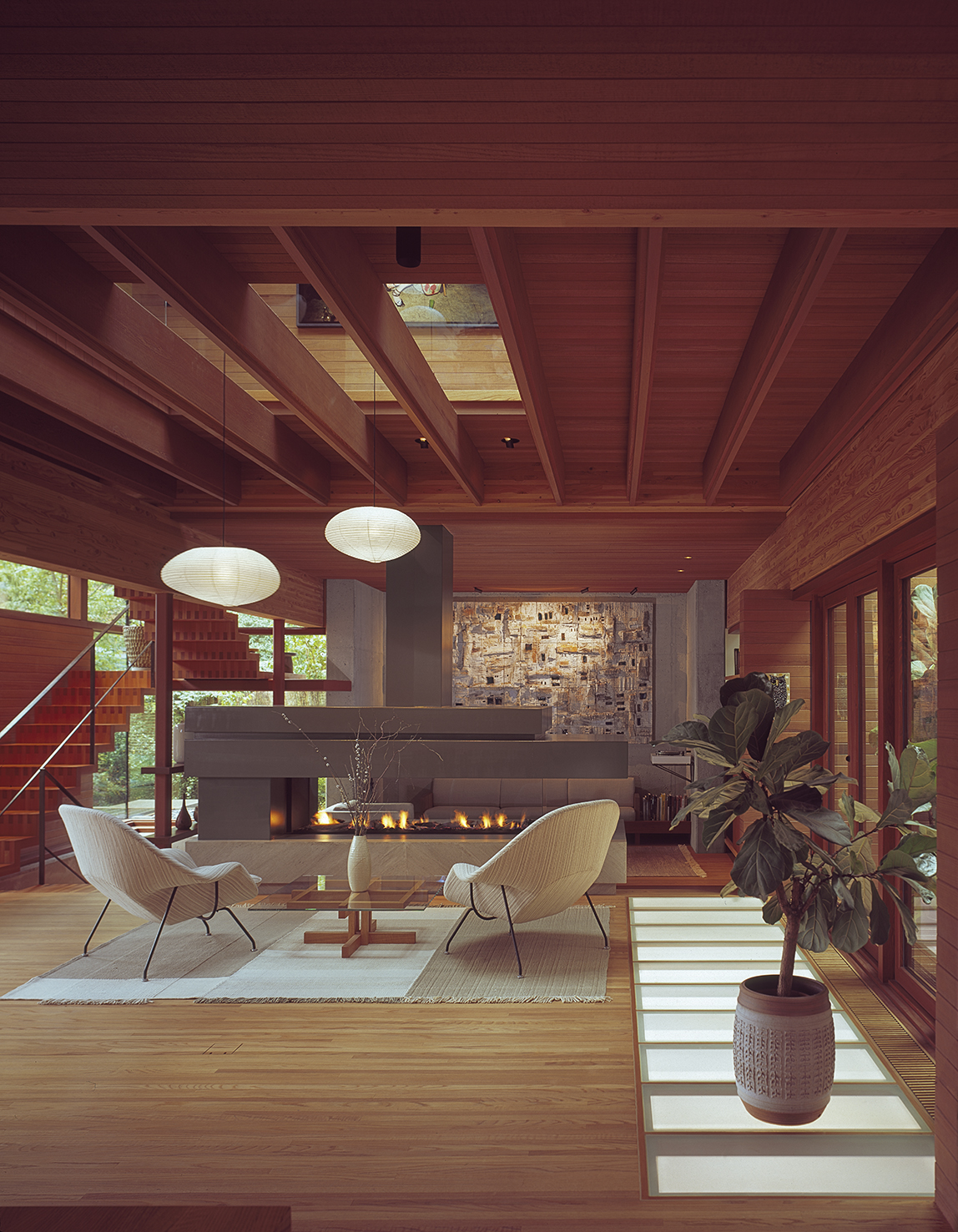
Tour Ray Kappe's Triesch Residence
As a young draftsman, Kappe worked on Eichler villas (Joseph Eichler's iconic low, glass-enclosed, A-frame roof homes that came to epitomise California Modern), which were, at the time, rising across 20th-century US suburbs. In the 1970s, he helped to found the academic course at SCI-Arc, the Southern California Institute of Architecture. His Los Angeles office promoted eco-modernism with flat roofs, heavy timber structural beams, and oversized picture windows framing leafy vistas. Triesch and his wife, Sara, a painter, wanted all those - but in their home base of Berlin.
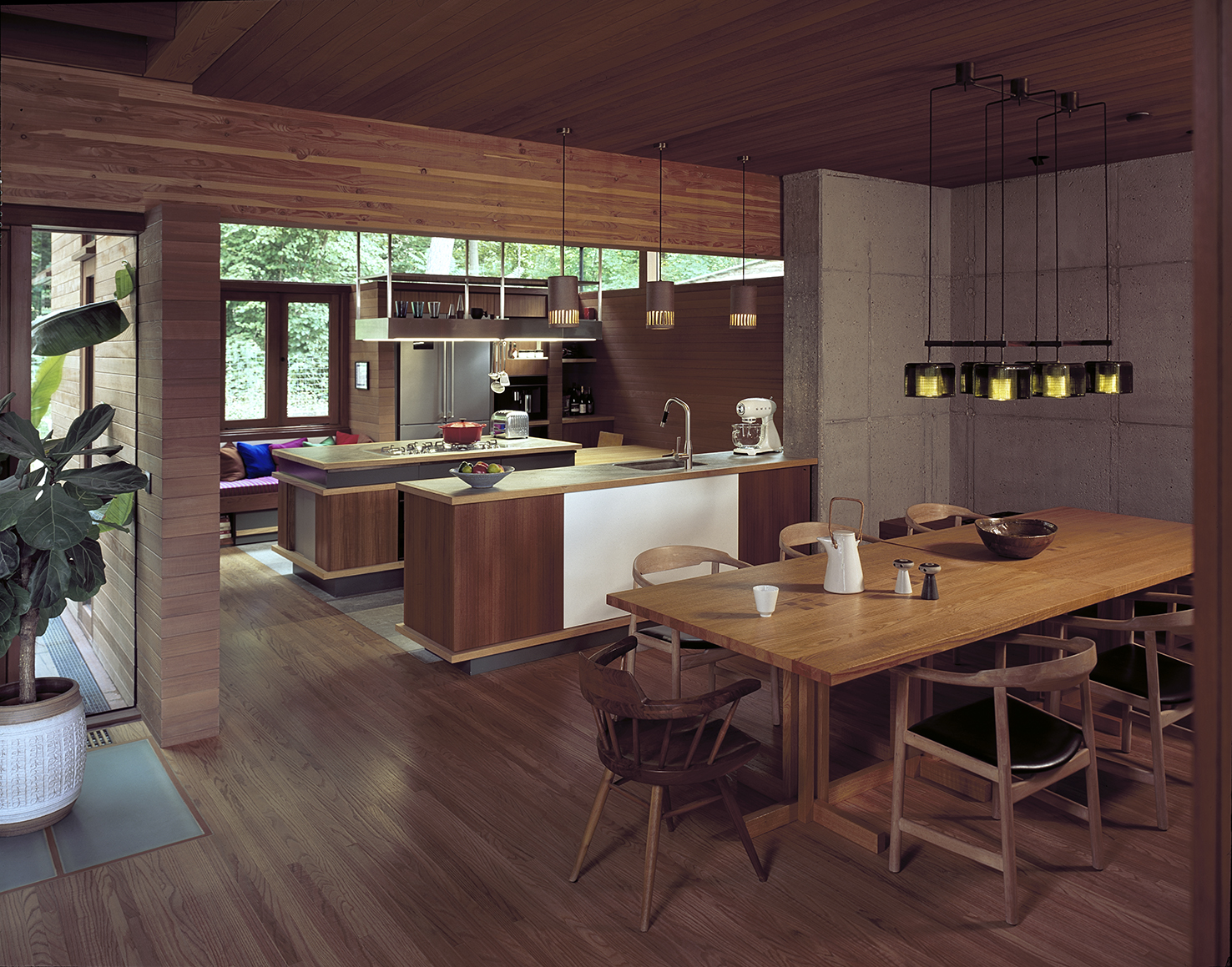
They decide to build their dream home from the ground up. Seven years ago, even before securing land where constructing a flat roof would be allowed, Triesch, 44, and his family of four, went straight to the source in Los Angeles to meet Kappe and tour five of his California houses. The architect had never built outside the US but still signed on - ultimately in partnership with his sons Finn and Ron - to invent a California-inspired home for Germany that respects the snowy climate and strict Berlin building codes.
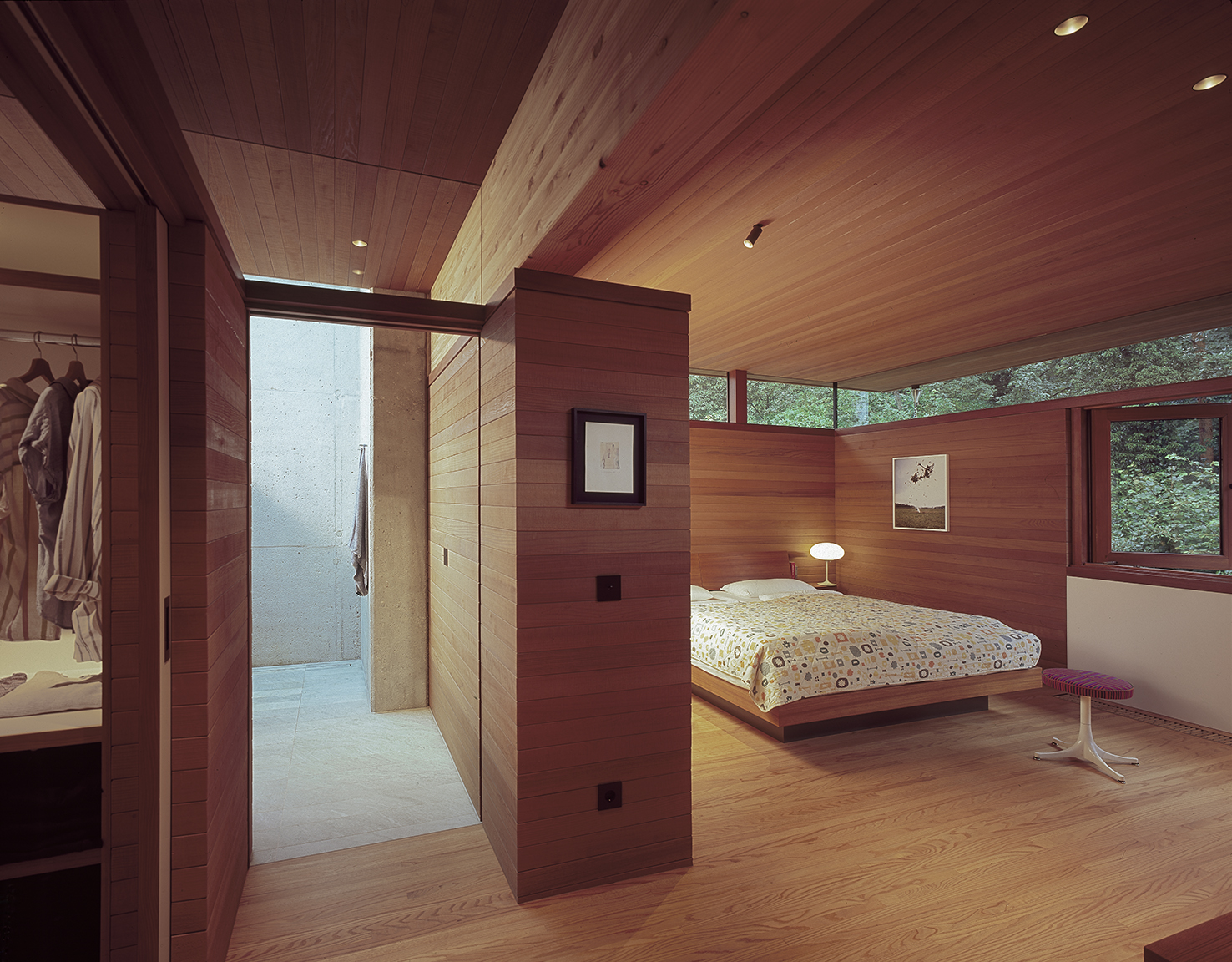
Ray Kappe died at age 92, and he never saw the finished project, which is now complete, featuring four bedrooms, two bathrooms, a sauna, a screening room, and a studio. It’s wrapped in large windows and custom-milled redwood siding shipped from Oakland, California, in a container, alongside a bespoke Ofuro soaking tub assembled from redwood planks laminated by an artisanal Pacific Coast workshop.
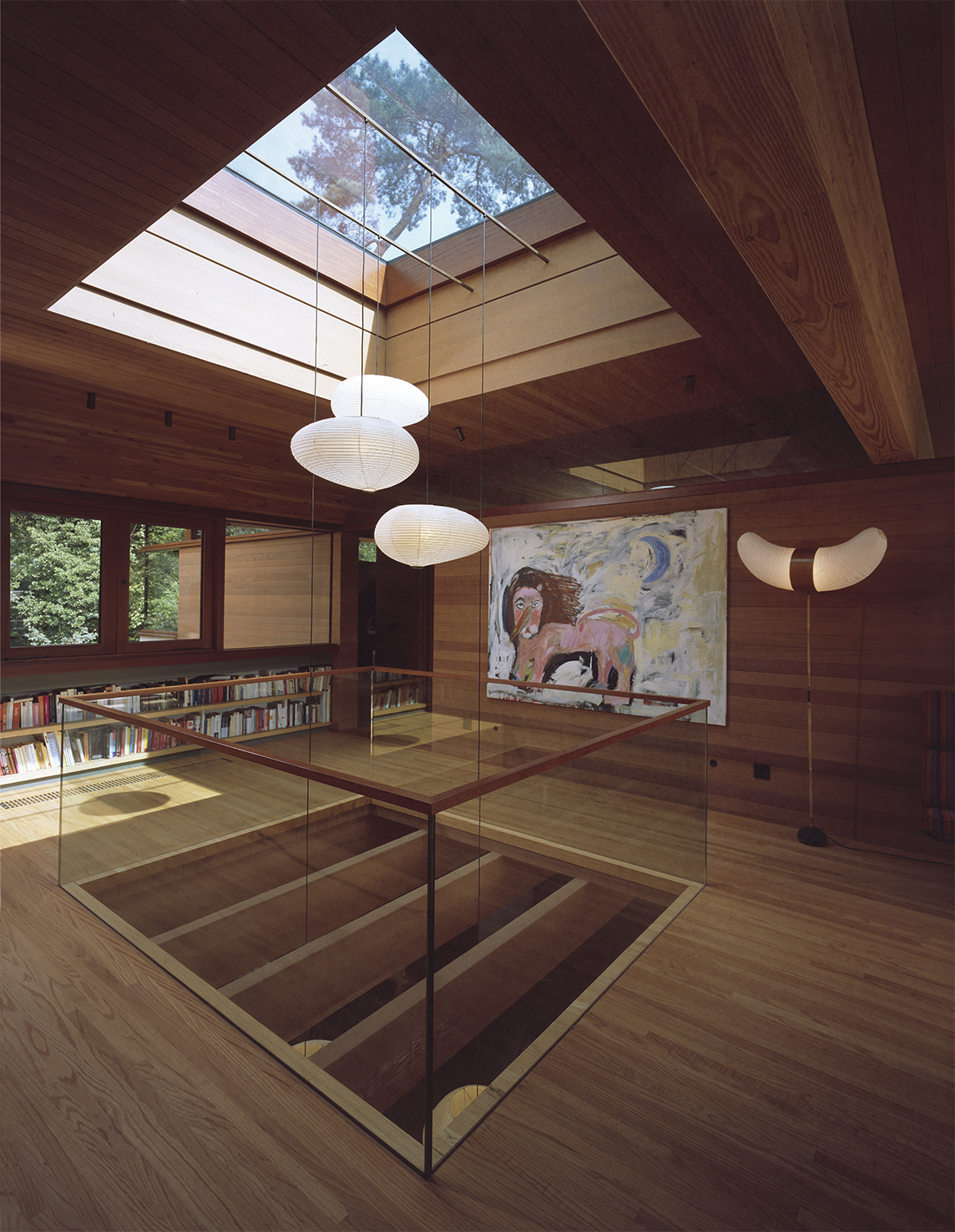
Challenges included a quest for Slentex, a slim new inorganic aerogel insulation to layer inside Kappe’s thin exterior walls (it reduced the required thickness of chunkier German wood-framed walls by half). Arguably, Kappe’s lifelong interest in architectural prefab also helped the design set sail. Factory-made walls and structural members got bolted together on-site in just a week, streamlining construction.
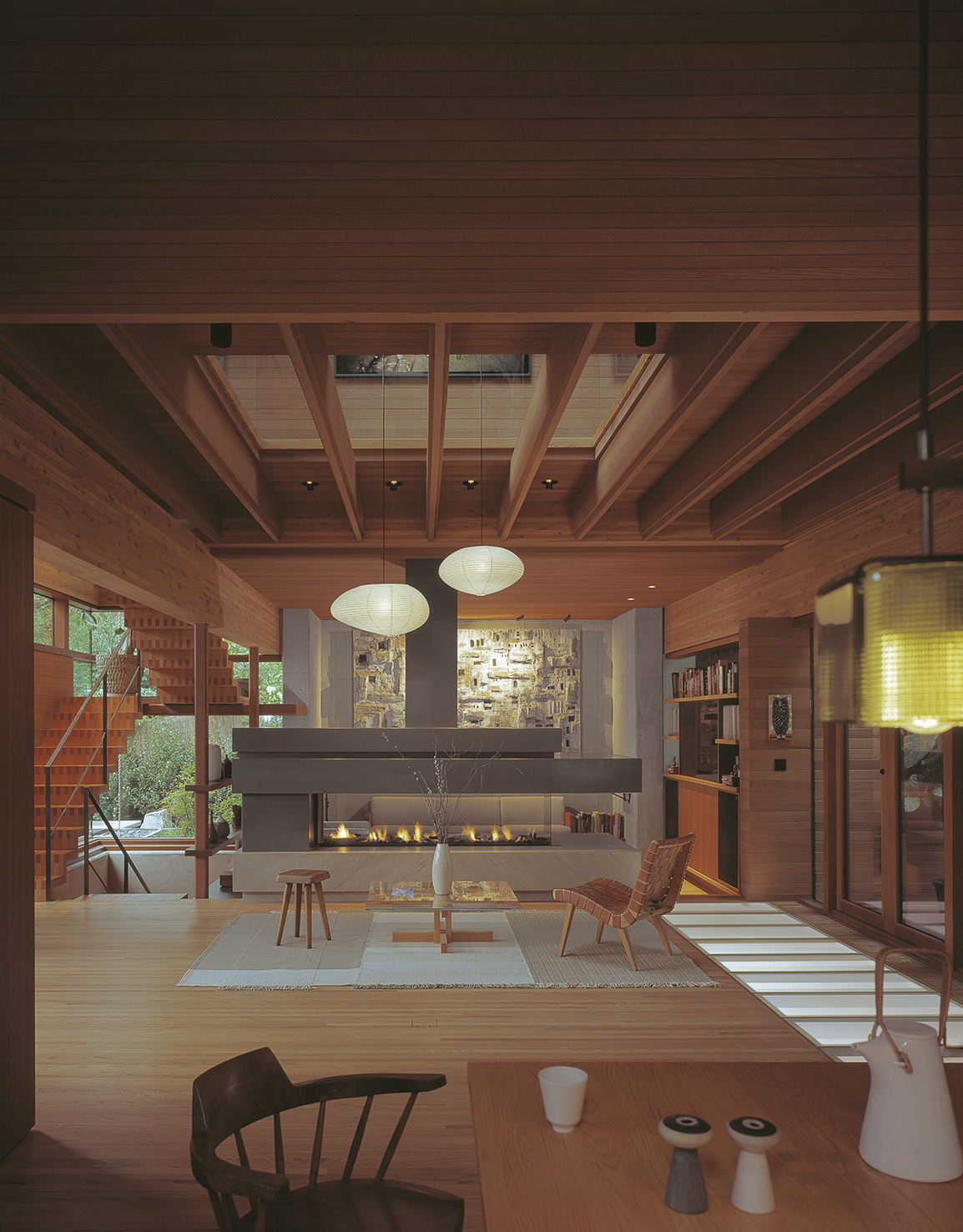
A suspended 'free-swinging' staircase uses the architect’s signature wood blocks - stacked 'like Jenga,' as Triesch notes - in Douglas Fir to match exposed structural beams. Such fir is rare in Germany, as is the 1.5”-wide clear red oak strip flooring. (Stains and wood protectants came from Sansin and Bona, two of many manufacturing partners for the house detailed on Triesch’s information-rich construction blog)
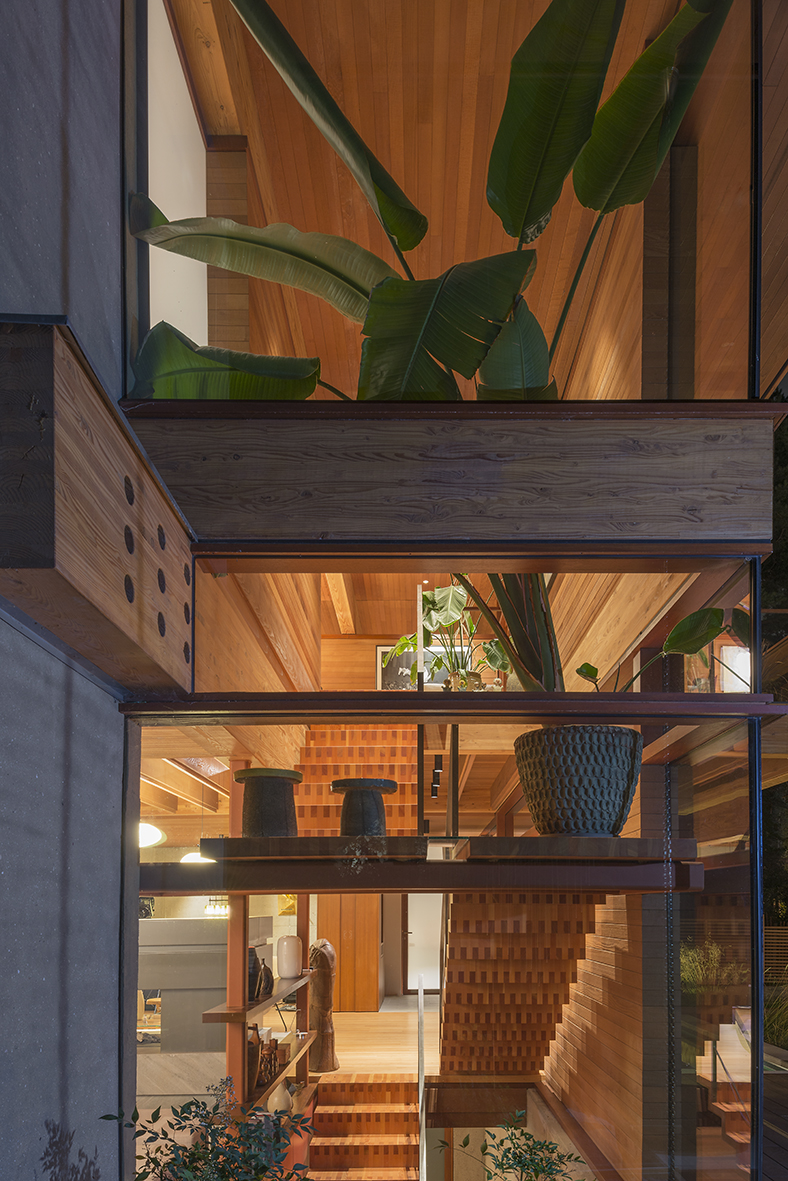
The structure grows out of a mature landscape rejuvenated by Topanga-based Richard Grigsby. Norifumi Nishioka selected plants for the wild new Japanese-style meadow with a manmade waterfall and creek bed inspired by a stream at the iconic Kappe Family home in Pacific Palisades.
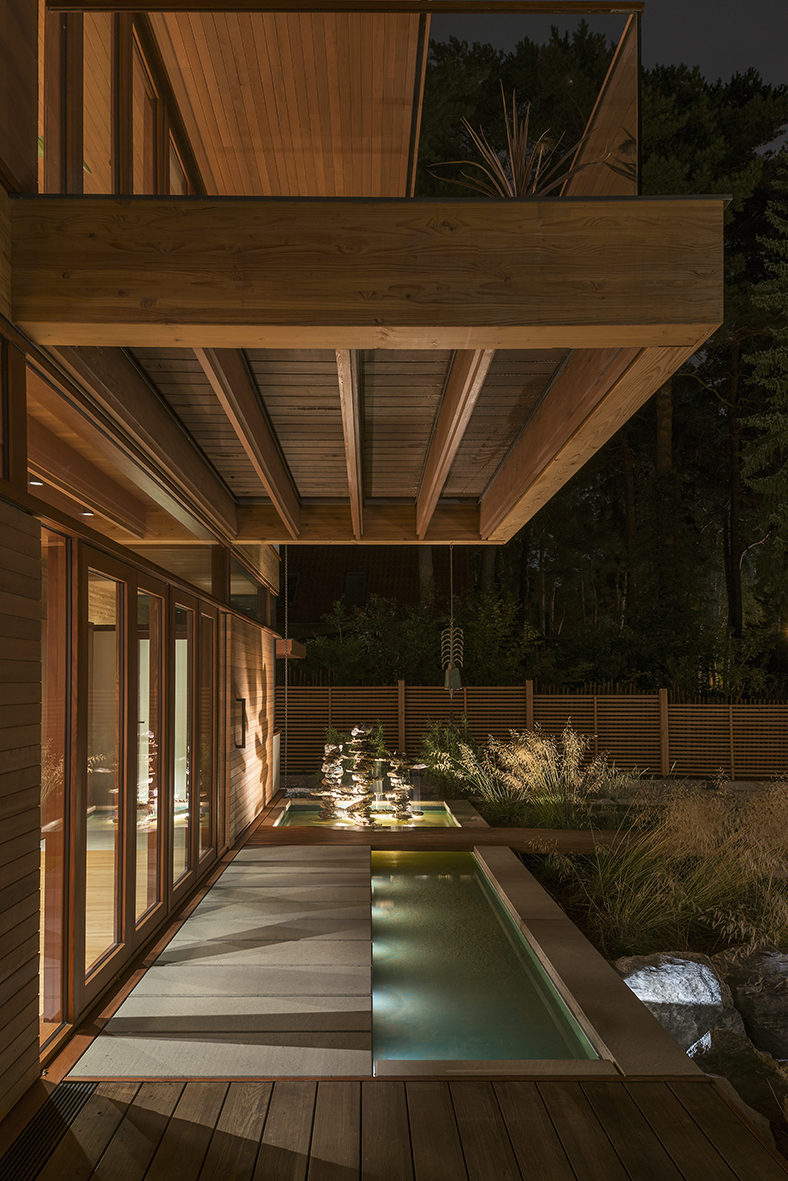
Of course, as a mid-century dealer, Triesch has 'a big stock' of vintage furniture. He decided to decorate his home with Kappe-designed pieces where possible, replicating one-offs he’d seen touring that home in LA. Today those new prototype tables and a sofa live in Kleinmachnow, while their authorized reproductions sell through his furniture shop, Original. in Berlin.
